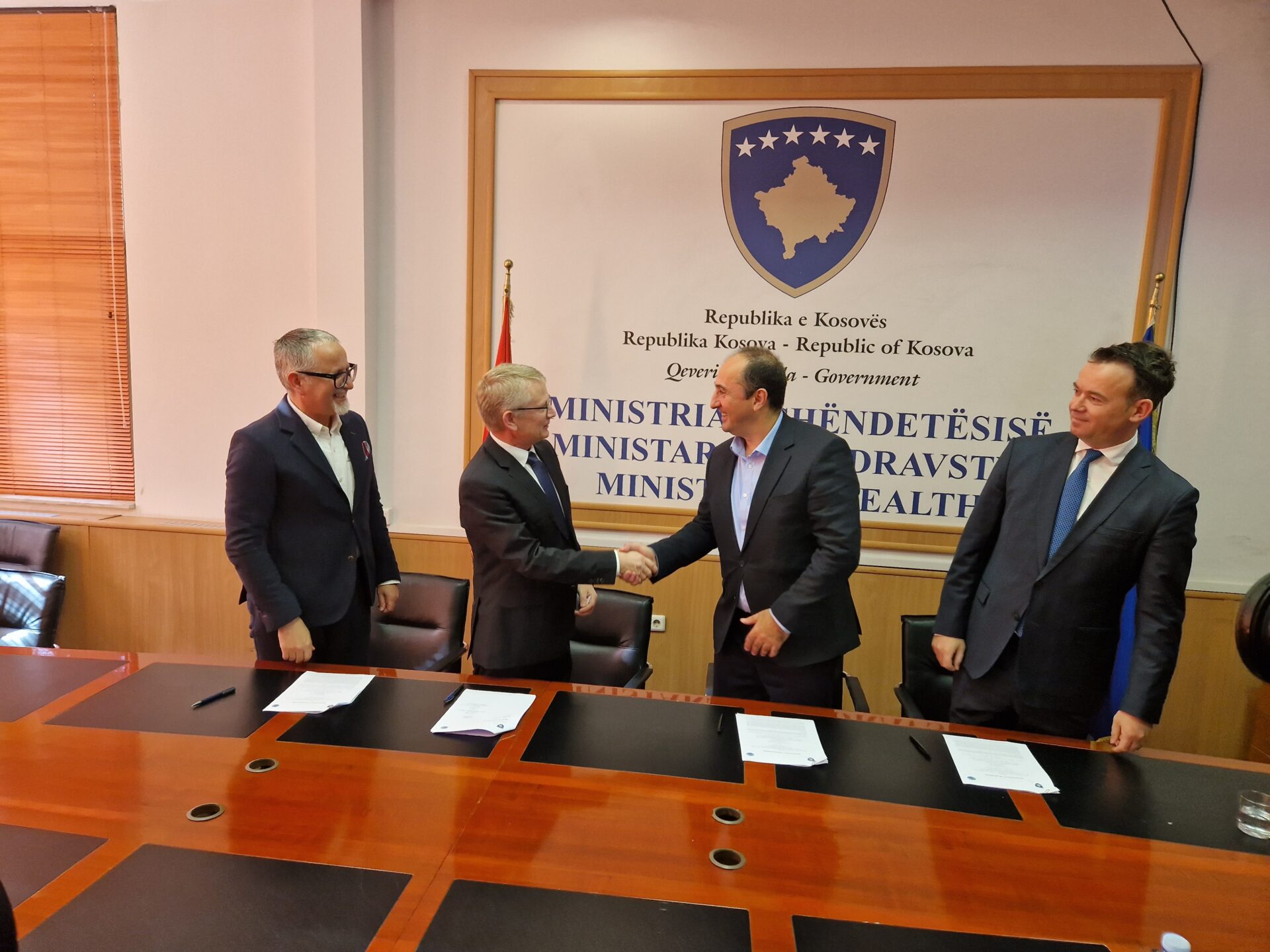Addressing antibiotic overuse through continuous quality improvement: developing and assessing stewardship interventions in primary care in Kosovo
Context
Kosovo’s healthcare system is confronting the significant issue of antimicrobial resistance (AMR). There is a general lack of awareness and misinformation within the community about AMR, its risks and consequences. This is exacerbated by the unrestricted over-the-counter sale of antibiotics, pressure from caregivers and patients for parenteral treatment, and premature discontinuation of antibiotic courses. A study on knowledge, attitudes, and practices conducted in 2017 revealed high levels of self-prescription of antibiotics for common illnesses (25%), including influenza (23.8%) and the common cold (20.6%), with prescribers being the primary source of information to the public (67.2%). Primary care providers lack continuous education and accessible training for proper antibiotic use. This, combined with diagnostic uncertainty and pressure from pharmaceutical companies to prescribe specific antibiotics, forms a complex set of key factors influencing the situation.
The Ministry of Health has acknowledged the importance of addressing AMR and has taken multiple measures to tackle this issue. With the expertise, resources, and dedication of ICARS, and with the support of the Ministry of Health, we can join forces to make considerable progress in the fight against AMR.
Ministry of Health
Problem
A predominant challenge in the primary care sector in Kosovo is the inappropriate use and over-prescription of antibiotics for upper respiratory tract infections (RTIs) across all age groups. A study conducted in primary care in 2013 revealed that 43% of antibiotics were administered through parenteral routes. Several factors are associated with the inappropriate use of antibiotics in Kosovo’s primary sector. Though stewardship is a key priority in the National Action Plan (NAP) and the IDP, Kosovo has not yet implemented AMS programmes.
Project overview
To improve the appropriate use of antibiotics for acute URTIs, an AMS programme will be implemented in primary healthcare facilities informed by point-of-care diagnostics (rapid strep tests).
The project will:
- Assess the current situation in primary care centres regarding the utilisation of antibiotics for acute URTIs.
- Design, implement and evaluate a multimodal AMS programme in selected primary care centres.
- Identify enablers and barriers to implementing and scaling up AMS programmes to improve the use of antibiotics for suspected URTIs in primary care.
- Estimate the economic impact of implementing the stewardship programme in primary care facilities.
- Develop strategies and implementation plans to scale the program within the primary care centres network and other municipalities.
Hosting ICARS was truly an honour and privilege. The process of co-developing a project provided invaluable experience for our core team and had a synergy of our partnership. We are motivated to use this momentum working hand in hand to tackle AMR through our project of introducing an antimicrobial stewardship program at the primary healthcare level.
Project Team in Kosovo
Outcomes
The project targets are antibiotic use reduction for URTIs by 20% and ceftriaxone for URTIs by 30%.
Outcomes include:
- Improved appropriate use of antibiotics for acute RTIs in primary care facilities.
- Increased knowledge on costs associated with barriers and enablers for AMS implementation and scale-up.
- Key decision-makers are presented with unput to inform policy and legislative changes.
Facts
Region: Europe
Sector: Humans
Country: Kosovo
Type: Project
Country partners: Medical Faculty, University “Hasan Prishtina”; HEI- UBT, Faculty of Pharmacy; Ministry of Health; National Institute of Public Health; Evidence Synthesis Group
Timescale: February 2024 – January 2027
ICARS funding: 586,904.64 USD
ICARS Science Team


Share
Share this project on socials

